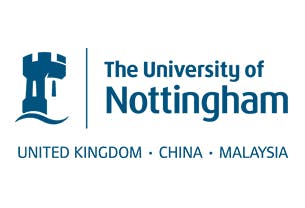Knowledge Transfer Partnership
What is a Knowledge Transfer Partnership (KTP)?
Since 1975, Knowledge Transfer Partnerships (KTPs) have been helping businesses innovate for growth. KTPs connect forward thinking businesses with the UK’s world class knowledge bases to deliver a business led innovation projects. KTPs allow businesses to: develop innovative solutions to problems and acquire new capabilities, they provide businesses with access to new expertise and recruit highly qualified graduates with the added benefit of de-risk research and development and government funding.

Computational Optimisation and Learning (COL) Lab
The Computational Optimisation and Learning (COL) Lab was launched in the summer of 2019 and is a group of academics, researchers and PhD students based in the School of Computer Science at the University of Nottingham. The COL was formed from a previously highly successful research group – the Automated Scheduling, Optimisation and Planning (ASAP) group. The ASAP existed for 22 years with a successful research track record in terms of PhD completions, publications, project funding and, most importantly, impact. The nature of the group changed over time with a gradual change towards optimisation and learning. With new academics and new funding, in 2019 it was decided to relaunch the group as the COL which better represents who they are and what they research.
University of Nottingham collaboration
In collaboration with Webroster Ltd, a UK based software design company, researchers at the University of Nottingham developed Optimiser – a commercial software product using world-class artificial intelligence algorithms to schedule homecare workers. The software became a key component of Webroster.net’s offering contributing to its growth and in March 2020 Webroster Ltd was acquired by Access Group. At the same time, a new company, NDG Artificial Intelligence Ltd. (NDGAI), was established to focus on commercialisation of the Optimiser – renamed OptifAI®.

Rodrigo Pinheiro
One of the PhD students, Rodrigo Pinheiro, was employed in the KTP in collaboration with Webroster Ltd and became the Chief Optimisation Engineer in charge of the optimiser module within Webroster.net. During this intense period of research on optimisation methodologies for Workforce Scheduling and Routing Problems (WSRP), Dario Landa Silva and his team have developed optimisation models and intelligent algorithms to automatically generate schedules for a ‘mobile workforce’, i.e., workers that travel between locations to perform tasks.
Homecare is an example of this type of scenario, where nurses, social workers, carers etc. visit patients in their own homes to provide them with health and/or care services. Research revealed the computational difficulty of this type of problem and laid the foundation for the models and algorithms that followed.
Go to our About Us page and learn more about Rodrigo and his illustrious career including links to his published articles.
Dario Landa-Silva
Professor of Computational Optimisation at University of Nottingham, Head of the COL Lab, Director of Teaching and Learning for the School of Computer Science.
The KTP Case Study
The all-round impact of OptifAI is summarised by Nigel Gittins, former owner of Webroster Ltd and now CEO of NDGAI. “The research expertise provided by the University of Nottingham team led by Prof Landa Silva was instrumental in the development of OptifAI (formerly The Optimiser) which contributed to the growth of Webroster.
Working with the University of Nottingham, our team pushed the boundaries of technology to enable our users to provide the highest levels of quality and efficiency. The success of The Optimiser was a major factor in the company acquisition and was essential to the establishment of the new company NDGAI” and “OptifAI helps organisations become more efficient and profitable in field-based workforce scheduling” .

KTP Case Study
Read the full case study and discover how our ground breaking product OptifAI® came about

